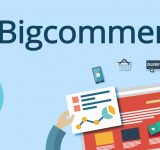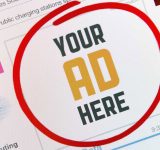Your website may be the online representation of your business, or the actual business, but either way it’s there to service your customers and clients.
Users visit your website looking for what you provide and the last thing you want to do after spending time and money on online marketing is confuse them or not provide them with the information they’re looking for.
This is why it’s so important to make sure whatever it is you’re selling, you have a page dedicated to it!
Looking for help with your website strategy? Try our article: 5 Keys to a Winning Website Strategy http://evisionmedia.ca/keys-website-content-strategy/
Many businesses make mistakes when planning their website and it’s often because they’re so knowledgeable of their products or services they assume others are as well.
This misstep leads to issues such as having a complicated navigation or incomplete user experiences. But the most glaring error is omitting something all together.
When you plan your website, approach the site as though you’re completely new to what you do.
Review your business and outline the various unique offerings and who is interested in them. It’s important to define your ideal target client and then assess why you think your business provides something of value to them.
Inbound marketing giants have been talking about developing user personas for years for a reason. By creating a fictitious user who represents a group of potential clients you can then begin the task of creating a page or pages that focus on what they want from you.
These target market personas typically start with demographic and psychographic-related questions that help define the ideal client you wish to attract in your business.
You can also delve into your website statistical information or hire professional search engine optimization specialists to research your Google Analytics who can provide demographic information that will show you some insights about who has previously visited your site and converted into being a client.
Compile all of your research data and form a clear idea on the type of users that come to your site. This will help you target them effectively by using the right language on a page that addresses their specific needs on what they are looking for.
Example:
Karen is a motivational speaker and mindfulness consultant. When assessing her data she clearly sees that she has a strong voice in helping businesses motivate employees and improve productivity of teams by developing unique strategies that help them work more effectively together. She also has great results booking corporate events for strictly motivational talks.
Using that data Karen sees that the decision makers for those two offers are quite different.
Persona 1 is a female aged 35 – 45. She has arrived at the page looking for someone to fix issues at her company and help her employees work better together.
Persona 1 requires a clearly titled page that spells out why Karen is the ideal candidate to help persona 1.
Persona 2 is male aged 40 – 50 who wants someone that can talk to a crowd full of people and entertain them while inspiring them to achieve more.
Persona 2 needs a unique page too. The page will have a different message that speaks to the specific needs of this user type.
Persona 1 now has a page: Team Building
Persona 2 has a page: Corporate Events
It’s a lot easier than you think to do this so don’t be shy about getting ambitious with your website strategy. If you have any questions you can always reach out to us for help!
Remember that not having these types of specific pages on your website is like not having a section of a store for something you sell. Picture a store that sells footwear and while they do have basketball shoes, they forgot to make a section for them. They would lose every potential customer looking for basketball shoes.
Honesty is very important when planning your website so be realistic about your business goals and what you provide. While it’s bad to not have a page for everything you provide, it’s worse to have a page for something you don’t and misleading users.
This month we’re targeting website must-haves so you can make sure your website accurately represents your business and converts visitors into clients. If you’re in the process of a redesign or planning a new site for your business, you’ll want to read our blog every week for more tips on making the most of your website for your business.







